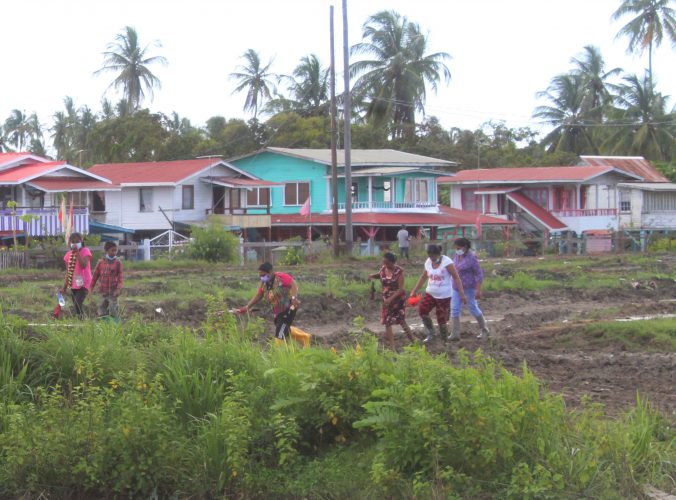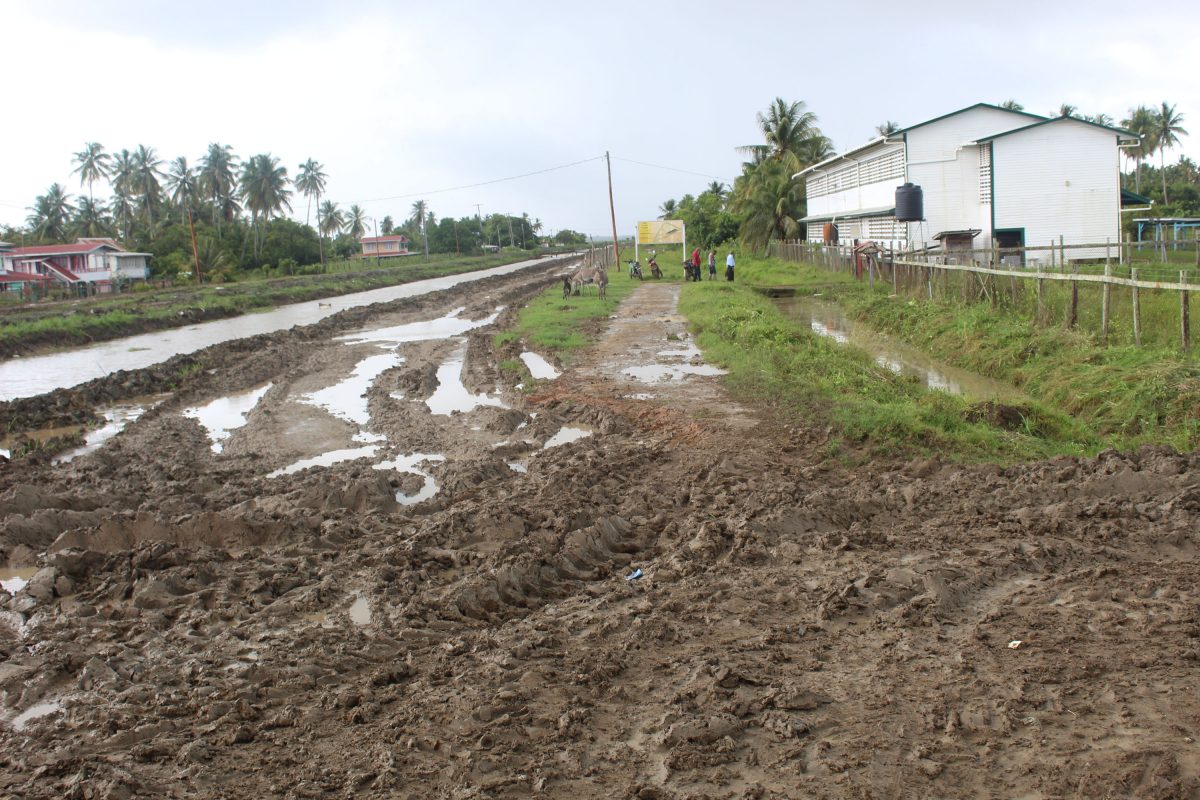Minister of Local Government and Regional Development, Nigel Dharamlall yesterday said that a survey of flood damage will begin today in Region Six.
Large parts of East Berbice-Corentyne – Black Bush Polder (BBP) in particular – have been ravaged by floods fuelled by heavy rain over the last four months.
BBP residents reported to Stabroek News yesterday that the floodwater has receded from most of the residential areas although the backlands remain completely submerged. Residents are now left to battle muddy streets, yards and dams.

Dharamlall in BBP yesterday, said, “As a matter of fact tomorrow (today) an assessment team will be in Region Six to start doing the assessment in terms of your losses whether it is agricultural, and agricultural includes crops as well as livestock.”
The minister stressed that he would be going around to the 70 neighbourhood democratic councils in the country along with the ten towns. “I have to go and make sure that we do the physical assessment of what needs to be fixed and addressed during the course of the recovery after the flood.”
He further told the residents that it would be a lot of work but that he was hopeful residents and farmers “would work with us to get over this phase…”
Residents in BBP were yesterday extremely upset about the situation their yards and dams due to the flooding. “If you see we yard gal, we can barely walk out. Mud deh all over”, one female resident from Lesbeholden said.
Herman Roopnarine, a cash crop and rice farmer, 40, of Johanna reported that “the water big at back dam side but in the housing area it gone.” The man stressed, “All over is mud. Wah you see here is nothing, we side you can’t even walk out them dams.”
Roopnarine noted that while they are grateful that the water has receded in the housing area they are now tasked with the cleaning and recovery process. “About 75% people in my area loss farms so we gon need deal”, he relayed.
He also said that he lost a number of crops and is now returning to his rice fields.
Nathanael Ledra of Mibicuri, BBP yesterday told Stabroek News that in his area the water has completely receded. He said, “The water completely gone down but just the trench water a bit high.”
Several residents of Lesbeholden, BBP also reported that the water had receded in their area.
Improved
Regional Chairman, David Armogan yesterday reported that the situation has improved in the region following the countrywide flooding. “We have managed now to control Black Bush to some extent, water has receded from people’s yards and so the drain levels and sideline levels are still high so if we got a few heavy showers we may run in back to a little bit of a problem but right now Black Bush is under reasonable control.”
However, he stressed that reports coming out of the backlands indicate that the water is still extremely high. Some farmers yesterday said that the water in the backlands remains above knee height.
Additionally, Armogan noted that some of the most affected areas in the region were Chesney, Fyrish, Babu Jaan, Port Mourant, Ankerville, Johns “and now we have managed to get it under somewhat control … because even though the water level is still high and it is still coming down from the savannah area but because we have empoldered all this areas the water is not coming into the residential areas but whatever is there we are pumping it out.”
However, Armogan said that they are keeping their eyes open for any possible breach in the empoldering.
According to him, in Ankerville and Babu Jaan there is still some floodwater in persons’ yards since those are extremely low areas.
One resident from Babu Jaan yesterday told Stabroek News that the water has receded a lot in her area but remains in her yard. “The water still deh lil bit but them pumping it.”
For over two weeks that resident had knee-high water and was forced to relocate to another relative’s house as she was unable to dwell in the lower flat of her house.
Armogan stressed that the region has over 200 rice field pumps and other larger pumps working presently, “and we are excavating those areas that had blockages as well.”










